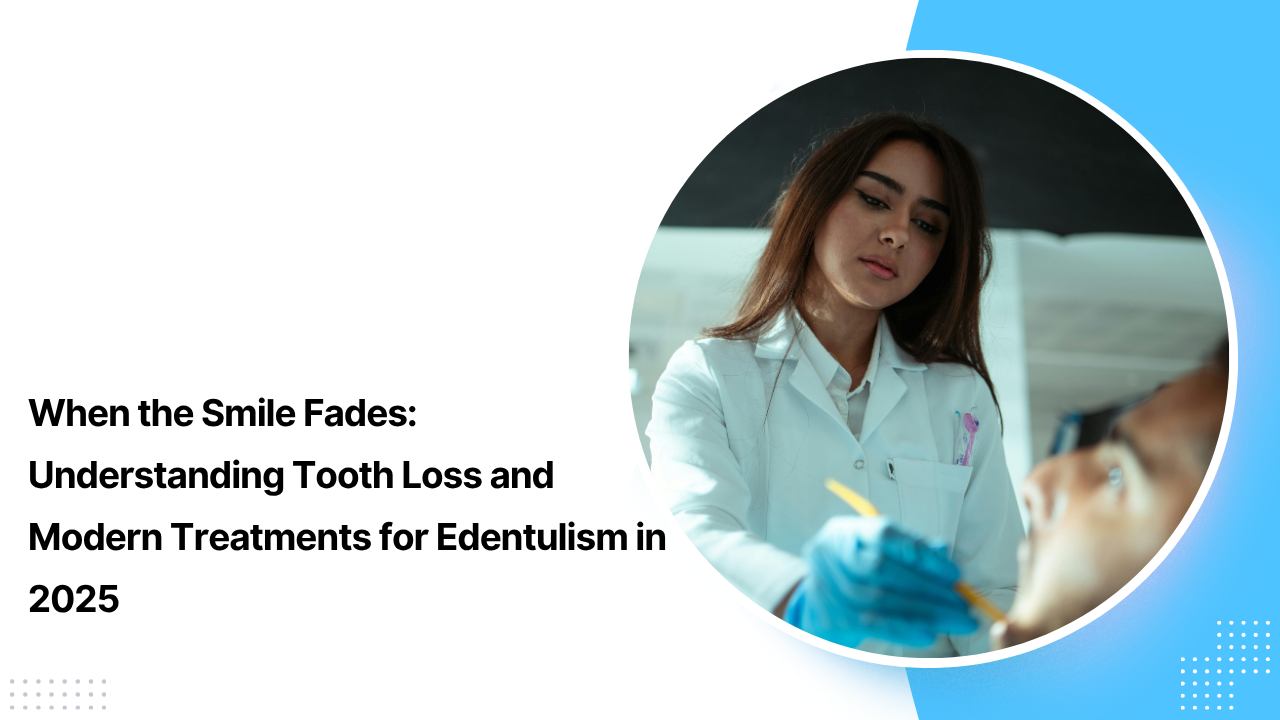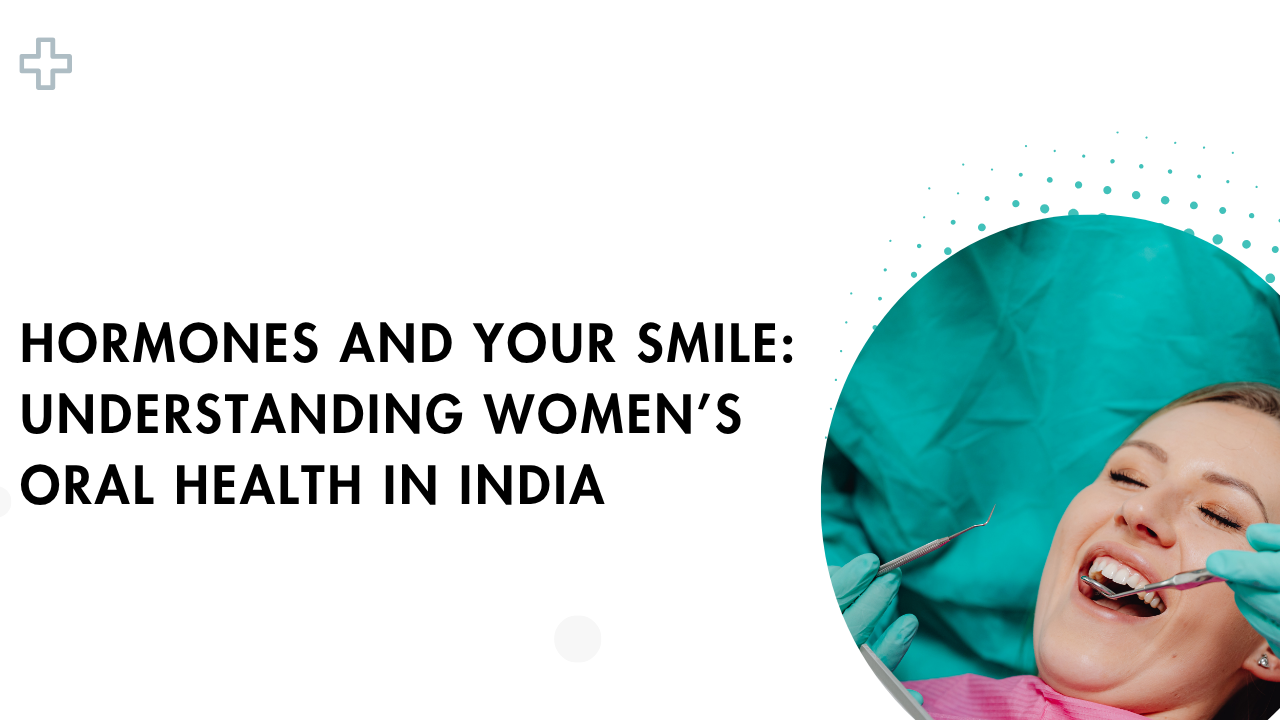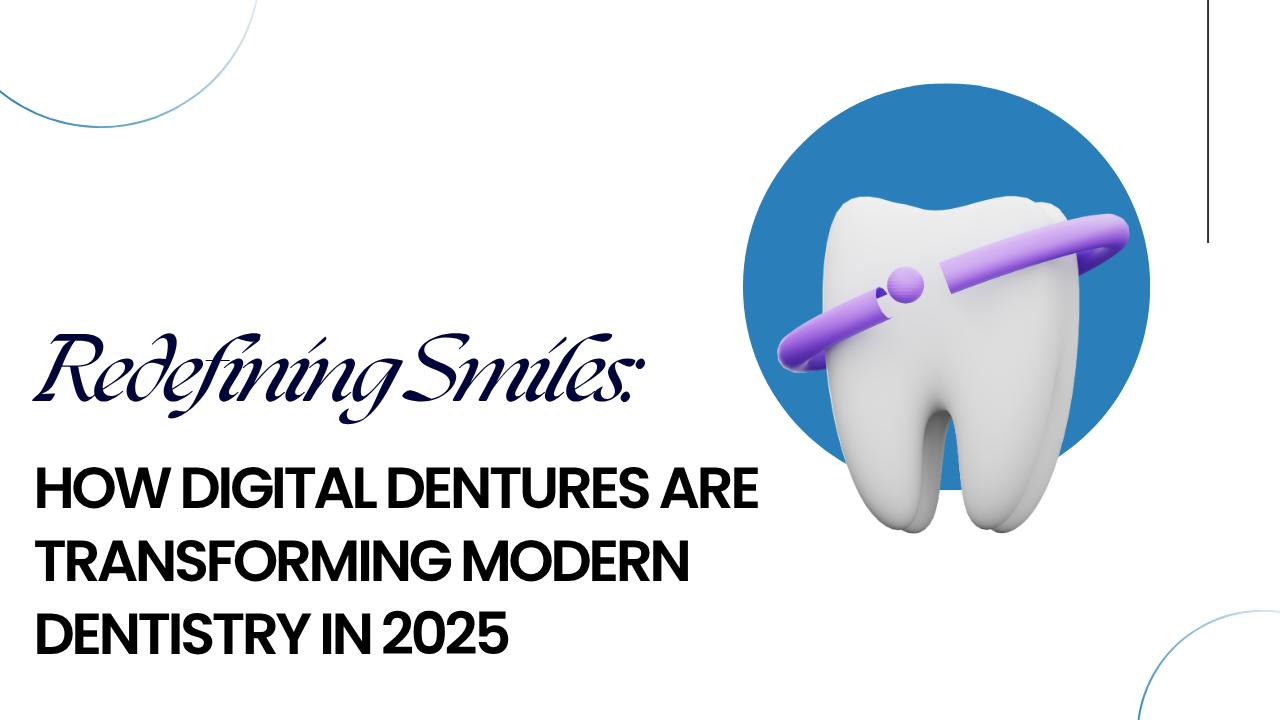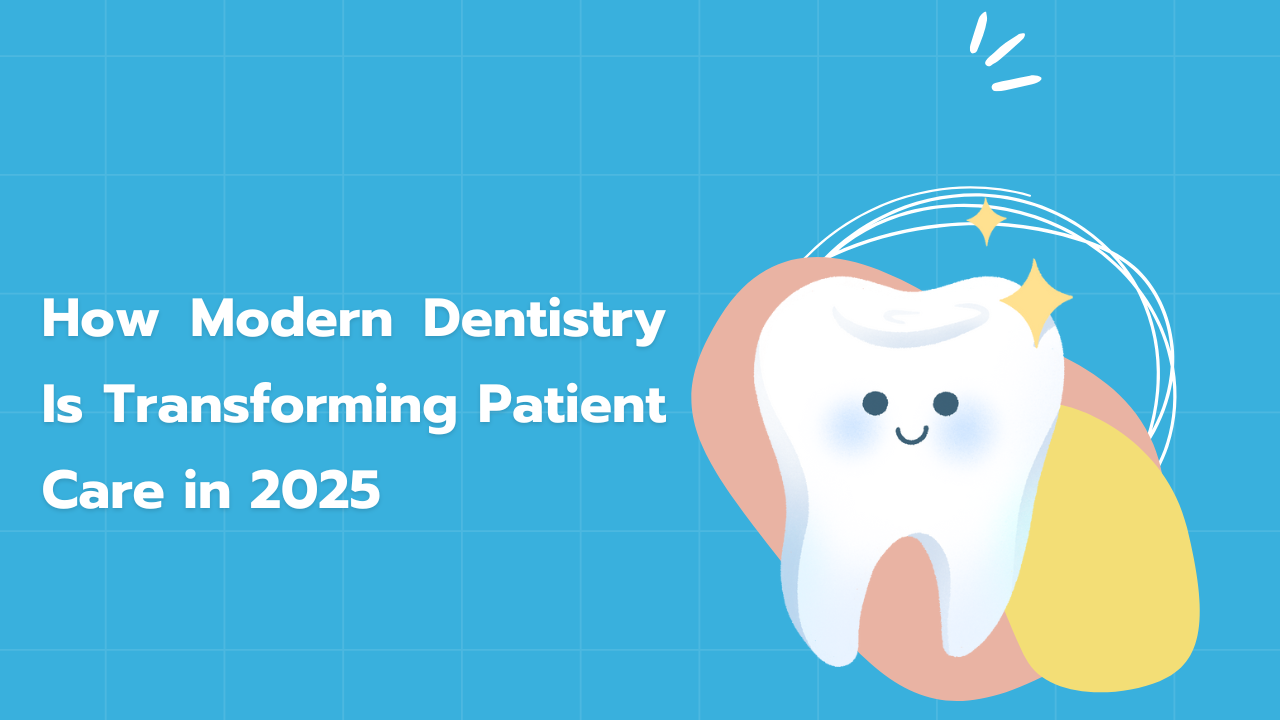Have you ever thought about how life would be if you couldn’t savor your favorite meals, laugh freely, or smile without hesitation? For millions worldwide, this isn’t just a thought—it’s their everyday reality. The cause is often overlooked but profoundly significant: edentulism, or tooth loss.
By 2025, dentistry will have advanced remarkably with innovations like digital scanning, same-day implants, and smile design technologies that were unheard of a decade ago. Still, tooth loss affects people of all ages, quietly influencing how they eat, speak, and perceive themselves.
Let’s explore what edentulism truly means, why it still occurs, and how modern treatments—especially dental implants and full-mouth rehabilitation—are helping people regain their smiles and confidence.
Understanding Edentulism Today
Edentulism refers to the absence of teeth, whether partially or completely. However, it’s no longer just an issue associated with aging. Younger adults in their 30s and 40s are increasingly experiencing early tooth loss due to untreated decay, gum infections, or lifestyle factors such as smoking and poor nutrition.
The impact goes beyond looks. Missing teeth affect chewing ability, speech, and even facial structure. Over time, the jawbone beneath missing teeth deteriorates, altering facial contours and making individuals appear older than they are.
Dentists throughout Kerala—from Kochi to Thrissur—are noticing more patients seeking help not only for dental health but also to restore their confidence. Losing teeth doesn’t just remove your smile; it can quietly diminish your sense of identity.
What Causes Tooth Loss? Common Factors Leading to Edentulism
Tooth loss usually results from a series of small, neglected problems rather than sudden events. The main causes include:
1. Gum Disease (Periodontitis)
A leading cause of adult tooth loss, gum disease begins subtly with symptoms like bleeding gums, bad breath, or mild swelling. If untreated, the infection damages the bone supporting teeth, causing them to loosen and eventually fall out.
2. Tooth Decay and Cavities
When decay penetrates deeply into the tooth pulp, it often leads to infection. Severe damage may require extraction. Despite increased awareness, untreated cavities continue to be a significant contributor to tooth loss.
3. Accidents and Trauma
Injuries from sports, falls, or vehicle accidents can cause sudden tooth loss. Although less predictable, prompt treatment can sometimes save damaged teeth.
4. Lifestyle Habits
Smoking, high sugar intake, and skipping regular dental checkups raise the risk of gum disease and decay. Over time, these habits create conditions that lead to tooth loss.
5. Systemic Health Conditions
Conditions such as diabetes or osteoporosis can weaken the gums and slow down the healing process. Additionally, certain medications decrease saliva production, causing dry mouth—a perfect setting for bacterial growth and tooth decay.
The good news is that all these factors are preventable. Modern dentistry focuses as much on prevention as it does on treatment.
Consequences of Tooth Loss
Losing teeth impacts more than just appearance; it affects health, function, and emotional well-being. When teeth are missing:
- Chewing becomes challenging, leading people to choose softer, less nutritious foods.
- Speech clarity suffers, especially if front teeth are lost.
- Facial muscles weaken and bone loss begins, resulting in a sunken, aged look.
- Self-esteem declines, affecting both personal and professional relationships.
Tooth loss is not merely a cosmetic issue—it influences function and quality of life. That’s why timely tooth replacement is essential for overall health, not just a luxury.
Modern Tooth Loss Treatments in 2025
Thankfully, dental care has advanced well beyond traditional dentures. Procedures that once took months or years can now be completed in weeks or even a single appointment. Here are the current options for treating tooth loss:
1. Dentures: A Classic Option
Dentures have existed for centuries, but those available in 2025 are much improved. They are lightweight, custom-made using digital scans, and crafted from materials that closely resemble natural teeth in color and texture.
Partial dentures replace some missing teeth, while full dentures replace an entire arch. They are affordable and non-invasive, making them a good initial choice for many patients. However, since they rest on the gums, they can sometimes feel unstable and do not prevent jawbone loss.
For some, dentures serve as a temporary solution before moving on to implants.
2. Implant-Supported Dentures: Combining Stability and Coverage
Implant-supported dentures merge the coverage of traditional dentures with the stability provided by implants. This technique uses a few implants (typically 2 to 4 per jaw) as anchors for a removable denture. The result is a secure, comfortable fit without the slipping or clicking common with conventional dentures.
For many patients in Kerala seeking a balance between cost and effectiveness, this method offers a practical and reliable option. It enables confident eating, natural smiling, and helps maintain bone health.
3. Full-Mouth Dental Implants (All-on-4 or All-on-6)
For those who have lost all their teeth, full-mouth dental implants offer a permanent, transformative solution. By placing just four to six implants strategically, dentists can attach a full bridge of new teeth that look and function almost identically to natural teeth.
This procedure is less invasive than traditional implant surgeries, and modern techniques have significantly shortened recovery times.
Clinics like Dr. Varun’s Smile World in Kochi have embraced this method to help patients regain their smiles—especially those who once believed they’d never be able to eat or laugh freely again. This approach is an investment not only in appearance but also in confidence and long-term oral health.
4. Mini Implants and Overdentures
For patients lacking sufficient bone for traditional implants, mini implants or overdentures provide an excellent alternative. These smaller implants support dentures without the need for bone grafts or complicated surgery. They are also more affordable and allow for quicker recovery. This makes them particularly suitable for older adults or those experiencing bone loss, offering stability and comfort without the demands of full-scale implant procedures.
5. Regenerative and Digital Innovations: The Future Is Here
Dentistry is advancing toward a future where losing a tooth doesn’t necessarily mean replacing it, but rather regenerating it. Technologies like stem cell research, 3D bioprinting, and tissue engineering are already being developed to enable tooth regrowth. Meanwhile, 3D-printed dentures, zirconia implant bridges, and AI-assisted smile design are making dental restorations more accurate and personalized than ever. Every smile is now digitally mapped to ensure replacement teeth not only fit well but also blend seamlessly with your facial features, speech, and expressions.
Selecting the Best Treatment for You
There is no universal solution for tooth loss. The ideal treatment depends on factors such as your age, overall health, bone density, lifestyle, and budget. A thorough consultation with your dentist will typically include:
- X-rays or digital scans to evaluate bone condition
- Discussion of your functional and aesthetic goals
- A customized treatment plan that balances comfort, cost, and durability
At modern facilities like Dr. Varun’s Smile World, the emphasis is on restoring harmony—not just replacing teeth but also reestablishing balance, bite function, and confidence.
Preventing Tooth Loss: Steps You Can Take Now
While advanced treatments are effective, maintaining your natural teeth is always preferable. Preventing tooth loss begins with consistent and attentive oral care. Effective habits include:
- Brushing twice daily with fluoride toothpaste
- Flossing or using interdental cleaners every day
- Eating foods rich in calcium and low in sugar
- Staying hydrated to support saliva production
- Avoiding tobacco and limiting alcohol intake
- Regular dental visits for professional cleanings and early gum disease detection
Many people believe that tooth loss is inevitable with age, but that’s not necessarily true. With proper care and timely treatment, your natural teeth can remain strong well into old age.
The Emotional Impact of Tooth Loss
Losing teeth can deeply affect self-esteem. Many people hide their smiles or avoid social interactions due to embarrassment. This emotional toll often goes unrecognised but is a major reason why people seek restorative dental care. Restoring a full smile often means restoring confidence. Modern restorative dentistry enables patients to eat comfortably, speak clearly, and smile without hesitation. The benefits extend beyond physical improvements to emotional healing as well.
The Future of Dentistry: More Intelligent, Safer, and Personalized
By 2025, dentistry will be evolving quickly. Thanks to AI-powered imaging, digital impressions, and laser-assisted surgeries, treatments are now faster, safer, and more accurate.
Procedures that previously needed several appointments can often be completed in just one visit. Recovery times are shorter, discomfort is reduced, and the outcomes look remarkably natural.
For those seeking treatment for tooth loss in Kerala, the goal has shifted beyond simply replacing missing teeth — it’s about restoring the entire smile experience, including function, aesthetics, and self-confidence.
A New Beginning for Every Smile
Losing teeth might seem like an ending, but it actually marks a fresh start. Advances in modern dentistry allow us to rebuild smiles that are stronger and often more beautiful than before.
Whether you’re missing a single tooth or an entire set, there’s a tailored solution that combines cutting-edge technology with artistic skill and precision with empathy.
If you’ve been delaying your dental care, let this be your encouragement to take action. The right treatment can transform not just your smile, but also how you live, speak, and feel.




